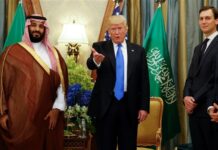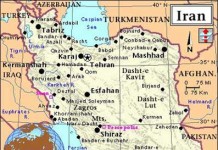Context

The American Middle East policy stands at a crucial juncture. The dramatic turn of events in Iraq, overthrow of democratically elected government in Egypt, the continuing Syria quagmire, and now the Gaza crisis, are all demonstrating the pressure points. The war on terror is covering ever-wider span, to include South and Central Asia and North Africa. The original Al Qaeda has over the years morphed in to a phenomenon called Al Qaeda and Associates, represented by groups such as IS (previously ISIS). What had originally started as the war against extremists is now truly a battle between non-state actors and state actors supported by the West.
This is happening at a time when the West is itself reeling under economic pressures and when it is increasingly faced with aggressive strategic adversaries, such as Russia and China. More and more the West is requiring its regional allies to lead the fight against extremists while it conserves and redirects its resources.
To avert the potential collapse of the entire nation-state structure in the region, leading to a protracted and bloody sectarian civil war, a complete rethink is now required. This review especially involves the role of non-state actors and how to deal with them. Without this revisit of the existing policy, the present global order risks further destabilization and loss of American influence.
Engaging Iran
In a dramatic turn of events, negotiations have not helped engage Iran but also create leverage for the West. Now, Iran has to seriously prioritize its interests and evaluate if it is more important to achieve a permanent nuclear deal and normalization of ties with the West. Or, will it continue with activities in Syria, and in support of Hezbollah and Hamas that are considered highly detrimental. From western perspective, Iran’s cooperation and constructive role in these areas, including in Iraq, can be highly conducive in achieving peace between Israel and Palestine. Iran can also play an instrumental role in Afghanistan.
While differences still exist on reaching a final deal, the reason the talks have been extended beyond July 20th is probably because engagement with Iran is already helping to control its behavior and influence vis-à-vis various regional flashpoints. However, this approach requires managing anxieties of Israel and Sunni Arab nations.
At this point, two outcomes are likely to further aggravate their concerns. First, the centrality of the nuclear talks, especially how Iran interprets it, is on the containment of its nuclear program, not elimination. Will this be acceptable to Israel is yet to be seen. Moreover, in the long run negotiations seem to increase Iran’s leeway and at the same time, eliminate the threat of a military strike against it. The debate continues if a ‘full spectrum’ approach to the talks with Iran is feasible. Israel has supported a stance that negotiations with Iran should also encompass its support for terrorism, human right abuses, and ballistic missile development etc. Iran has resisted such a broad approach.
All of this raises the question that if there is willingness to talk with Iran despite its support for extremists, then this suggests there is in fact a political solution to the menace of extremism. It requires talking to the actors who control and support them. The state sponsorship of these groups is not really the problem; the real danger is from groups that don’t listen to anyone.
Islamic regions and societies are undergoing a fundamental transformation, stratifying it across liberals, moderate Islamists, and extremists. Regardless of the reasons why this is occurring, the balance is shifting towards religious conservatism, which is greatly unnerving for global powers. Especially, when there exists an untested hypothesis that if moderate Islamists were to gain power, they will ultimately support the extremists’ agenda. This premise needs to be tested. As oppose to concentrating on preventing moderate Islamists from gaining power, they should be facilitated if they do win elections. Moderate Islamists present the last hope to change the tide. Let them come and fail, if that happens to be the case.
In this context, the engagement with Iran takes on added emphasis. If a deal over its nuclear program is reached in the near future, it conveys that if properly engaged, even theocracies can act rationally. While this may be true in the short term, the fear remains how this may turn out in the long run.
Focusing on the Masses
The success against extremists will not be achieved by ‘killing them all,’ in fact the number of extremists is on the rise. This war will be won by moving the masses away from the pull of non-state actors and making the state actors deliver, which are otherwise exploiting democracy and not governing. The association of dysfunctional state actors with the West adds to the motivation of non-state actors.
How this can be done requires more thinking. One way to achieve this is to bring more moderate Islamists in to the fold, despite fears and apprehensions, and then help shift the total societal balance to the center. Additionally, by linking economic assistance to this goal. There should be no illusions, adjusting this balance will require many years, as it did to get to the present state.
Managing The Saudis and the Israelis
Engaging Iran is only one part of the equation, managing Saudi Arabia and Israeli anxieties, is the other part of the puzzle. Letting Israel loose in Gaza, or falling to Saudi pressure to bomb Syria or arming the opposition will make the matters even worse.
It was the 2009 Gaza blockade that eventually led to 2010 Freedom Flotilla incident and the resurgence of Turkish image as the champion of Muslim causes. This Arab political and social weakness is also linked to the Arab Awakening that got underway in late 2010 and arrived in Egypt in 2011.
Moreover, relying solely on the military establishment to maintain a status quo is no longer feasible. As is putting one brand of non-state actors against the other. It will lead to further destabilization in the long run and creation of more IS like Frankenstein’s.
At this juncture, the best way to protect American interests and influence, and the global order, is to engage those that extremists listen to, and to go after the ones that don’t listen to anyone, and those that will create havoc to maintain status quo.



